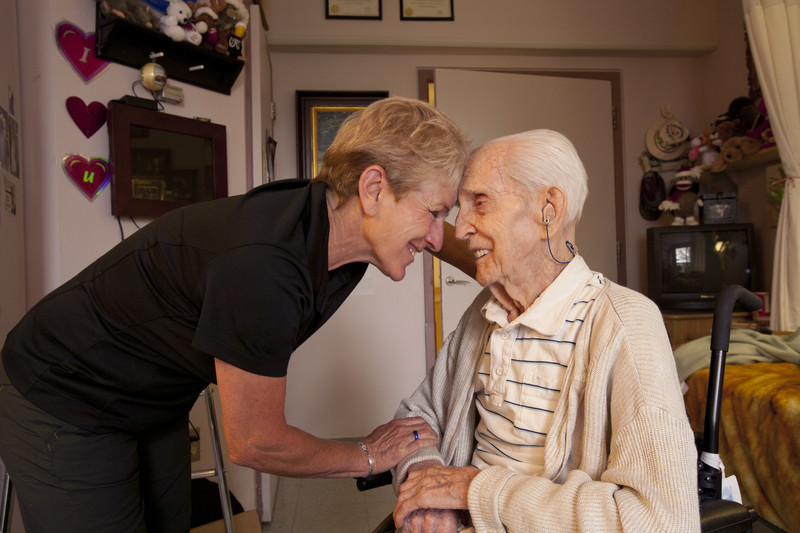How Elderly Care Can Help Seniors with Vision Impairment in Ottawa, ON
Uncategorized | August 13, 2018
Vision loss can be devastating, as it can be a major contributor to the loss of independence and poor quality of life in older persons. Luckily, there are options for seniors with this disability, through elderly care and other medical services.
Vision Loss of Seniors
Seniors suffering from vision loss may also be struggling to engage in daily activities. Reading, meal preparation, or even using the telephone – behaviors we take for granted – may become difficult, or impossible. Although the odds of vision impairment tend to increase with age, we shouldn’t consider vision problems a normal part of aging. The effect this loss has on seniors shouldn’t be taken lightly, as it is a traumatic problem with substantial adverse effects on the person and their loved ones, as well.
Research shows that older adults with vision loss eventually experience greater challenges with their daily activities. They’re likely to give up driving, have troubles with shopping, managing finances and housework. Unfortunately, an older adult with impaired vision is more likely to have difficulty getting outside, or walking, leading to increased probability of falling and breaking a hip.
Seniors with vision loss also deal with more chronic conditions, such as diabetes, heart disease, and stroke, which might be attributed to their poor diet and the fact that low-vision seniors aren’t as physically active as other older adults. (Only 59.6% of low-vision seniors report activity compared to 70.2% of normal-vision seniors.)
These functional limitations along with chronic disease create higher levels of depression and anxiety than most seniors. When a visually-impaired senior gets depressed because of vision loss, he or she also tends to have increased medical problems. Thus, a vicious cycle is formed, where depression creates a worsening physical state, and a worsening physical state increases their depression. This can lead to isolation and cessation of the social activities that were once enjoyed. These high levels of depression and anxiety actually end up preventing seniors from their everyday activities even more than their visual problems!
Here’s the good news… With support and professional therapy developed to assist visually-impaired seniors, this vicious cycle is more likely to be stopped. Doctors can prescribe rehabilitation that will arm seniors with coping skills to better manage their vision loss, so they can remain active in their families and communities.
Family, friends, and caregivers can also attend to seniors with meal preparation and transportation to events, appointments, and gatherings, so that isolation is limited, and a sense of normalcy returns to their daily lives.
How We Can Help
If your elderly loved one is experiencing vision loss and could benefit from the help of our elderly care services, contact us today! We are available 24/7 to help your loved one and can provide care that is specific to their needs.
Individualized Home Care Options
Long-Term Home Care, 24 Hour Home Care & Short Term Care Options Customized for You







